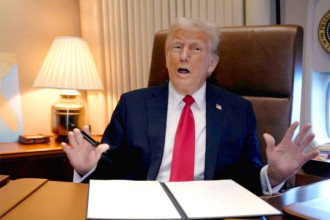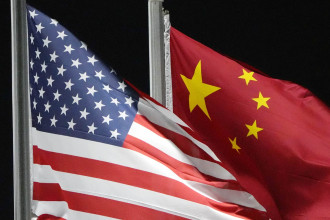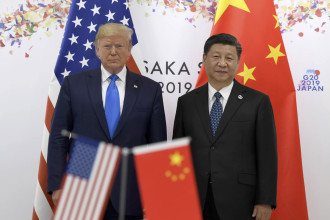
Friedrich Naumann Foundation for Freedom South Asia hosted a thought-provoking webinar, titled 'Celebrating the Dalai Lama’s Legacy and Tibet’s Future: Perspectives from Europe, South Asia, and China', last Friday.
The event brought together distinguished voices from academia, activism, and governance to examine the profound impact of the 14th Dalai Lama and the evolving trajectory of Tibet's future.
Dr Swati Chawla, Associate Professor and historian of modern South Asia and the Himalayas, moderated the discussion. Currently serving as Assistant Director at the Centre for Learning and Innovative Pedagogies at Jindal Global University, Dr Chawla framed the dialogue with key questions: What does the Dalai Lama’s legacy signify on both personal and political levels? What responsibilities lie ahead for the Tibetan community? And how are Tibetan futures being shaped beyond Dharamsala?
-1743999480.jpg)
Kalon Dolma Gyari, Security Minister of the Central Tibetan Administration, delivered the opening remarks. She described the Dalai Lama’s legacy as both simple and profound. "Simple," she explained, "because his message is rooted in compassion, wisdom and peace. And profound, because he represents spiritual leadership, political reform, and cultural resilience.”
Kalon Gyari highlighted the Dalai Lama’s transformation of Tibet’s theocratic governance into a democratic model – even in exile. She also emphasised his 1987 Five-Point Peace Plan, in which he proposed Tibet as a zone of peace and raised early concerns about environmental degradation. “His Holiness is a global figure,” she noted, “And as we prepare to celebrate his 90th birthday, Tibetans worldwide will mark the Year of Compassion – from July 6, 2025, to July 6, 2026.”
Dr Dawa Lokyitsang, a researcher and Tibet expert, reflected on the significance of this milestone. She situated the Dalai Lama’s legacy within the broader context of contemporary geopolitics, stating, “In a world witnessing the rise of authoritarianism and populist politics, His Holiness offers a rare, selfless model of leadership. While others consolidate power, he relinquished it – fostering democratic institutions and placing children at the heart of his vision.”
Dr Lokyitsang shared personal insights, mentioning her father, who was educated in the Tibetan exile school system established by the Dalai Lama. “His Holiness was one of the largest private donors to these efforts,” she observed. “He and his early collaborators became surrogate parents to orphaned children. That pedagogy of care and resistance shaped entire generations.”
She drew comparisons between the Tibetan struggle and those of indigenous communities in North America, adding, “While some are recovering from colonial trauma, Tibet still faces such tactics. But Tibet had a leader who began rebuilding from the very moment of exile.” For her, exile has not been a passive state of waiting but a space of creation. “We’ve built something profound – from schools to cultural institutions – guided by His Holiness’s vision.”
Namgyal Dolkar Lhagyari, member of the 17th Tibetan Parliament in Exile representing Utsang province, reinforced these sentiments. “His Holiness represents ‘compassion in action,’” she said. “Despite his influence, he empowered the people instead of consolidating power. That is extremely rare.”
Lhagyari also emphasised the importance of women and younger generations in carrying forward the Dalai Lama’s vision. “As a Tibetan woman and a Rangzen advocate, I stand on the shoulders of a legacy that values diverse voices,” she remarked. “Our disagreements today are not signs of dysfunction but of democratic engagement. His Holiness encouraged dialogue – not merely politically, but also within Buddhism.”
She expressed hope about the younger generation’s growing political involvement but stressed the responsibility to speak for those still inside Tibet. “We must speak for those who cannot,” she urged. “That is our duty.”
Tenchoe Gyatso, President of the International Campaign for Tibet, offered both personal and international perspectives. Born in Dharamsala in the 1960s, she reflected on growing up under the Dalai Lama’s moral and visionary guidance. “Even as refugees, we were raised with confidence, identity and pride – all because of his foresight and leadership,” she said.
Gyatso described the Dalai Lama’s early exile years, recalling, “He arrived in India with nothing but the robes on his back. Yet, he began rebuilding – from education to diplomacy, from cultural preservation to global advocacy.”
She highlighted the Dalai Lama’s influence on international politics. “I’ve seen him garner bipartisan support in Washington, DC – a testament to his integrity and moral clarity,” she stated. “When he visited the US during a time of deep political division, both parties united to welcome him. That’s the kind of unity his presence inspires.”
Looking ahead, Gyatso underscored the importance of sharing the Dalai Lama’s teachings, especially as his travels become less frequent. “His teachings are accessible in books, films and digital platforms. We, the Tibetan community and allies, must continue to spread his message.”
She concluded with a mention of His Holiness’s forthcoming book, Voice for the Voiceless, and reiterated the global call for compassion. “As we celebrate the Year of Compassion, this is our call to action – to continue his work and amplify emerging voices.”
As the session drew to a close, moderator Dr Chawla noted that the speakers had not only celebrated His Holiness’s enduring influence but also outlined a roadmap for Tibet’s future – grounded in education, compassion, democratic engagement and global solidarity.
In line with the Dalai Lama’s teachings, the webinar ended not with declarations but with shared responsibilities – to uphold his legacy, to preserve identity in exile, and to build a compassionate world that transcends borders.
READ ALSO:
- FNF hosts webinar on ‘The Future of Tibetan Leadership: Insights on His Holiness the Dalai Lama’s Succession’
- FNF South Asia hosts dialogue on ‘South Asia and Germany: Perspectives on Economy and Security’
- FNF South Asia hosts webtalk on ‘BRICS Summit in Kazan: India’s Agenda’
- FNF South Asia webinar explores ecological challenges for conservation in the Bay of Bengal region
- FNF South Asia hosts webinar titled 'India Votes: Inclusive Democracy 2024'
- FNF South Asia holds conference to address LGBTQIA+ rights in South Asia, Europe






